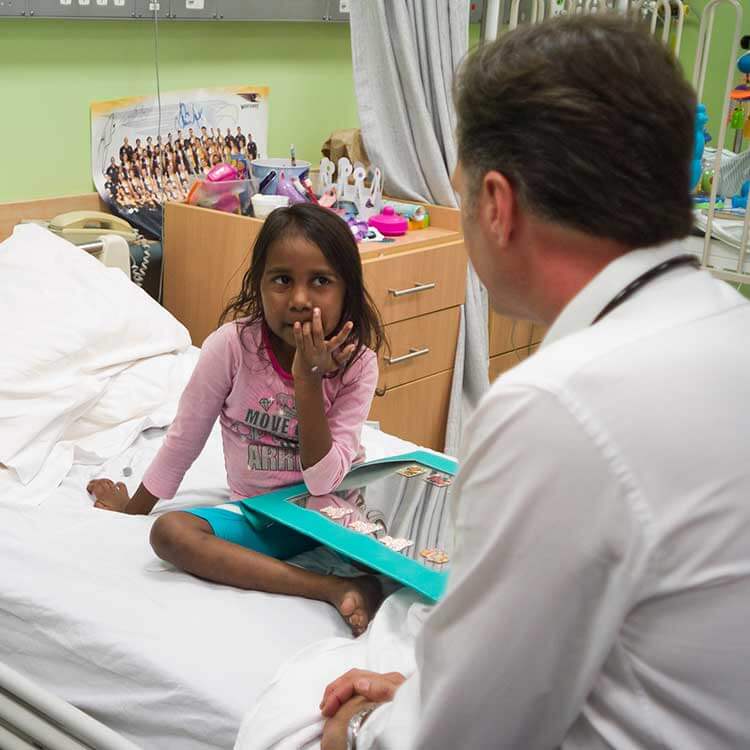Search
Research
The changing epidemiology of invasive pneumococcal diseaseWe investigated trends in invasive pneumococcal disease (IPD) in Western Australia (WA).
Research
Diverging trends for lower respiratory infections in non-Aboriginal and Aboriginal childrenTo investigate temporal trends in admission rates for acute lower respiratory infections (ALRI) in a total population birth cohort of non-Aboriginal and...
Research
Infection is the major component of the disease burden in Aboriginal and non-Aboriginal Australian children: a population-based studyInfection accounts for the majority of pediatric mortality and morbidity in developing countries, but there are limited data on the infectious diseases...

News & Events
Bold bid to end rheumatic heart diseaseSome of the nation’s leading medical researchers will converge on Darwin this week to step out a plan to wipe out rheumatic heart disease.
Research
AGAR KidsBacteraemia is associated with significant morbidity and mortality in children and adults, more frequently affecting neonates, Indigenous children and children admitted to hospital.
Research
Characterising the epidemiology of RSV in Australian children through record linkage: clinical burden, outcomes and risk factorsHannah Peter Moore Richmond OAM BSc (Hons) GradDipClinEpi PhD MBBS MRCP(UK) FRACP Head, Infectious Diseases Research Head, Vaccine Trials Group 08
Research
CORONAVAX – Preparing Community and GovernmentChristopher Blyth MBBS (Hons) DCH FRACP FRCPA PhD Centre Head, Wesfarmers Centre of Vaccines and Infectious Diseases; Co-Head, Infectious Diseases
Research
Determining the off-target effects of infant vaccines on respiratory infection outcomes in Western Australian childrenChristopher Hannah Lea-Ann Blyth Moore Kirkham MBBS (Hons) DCH FRACP FRCPA PhD OAM BSc (Hons) GradDipClinEpi PhD PhD Centre Head, Wesfarmers Centre
Research
Enhancing Protection against Influenza and COVID-19 for pregnant women and medically at risk children: EPIC StudyPregnant women are 3 times more likely to die from COVID-19 and over 7 times more likely to be admitted to an intensive care unit with influenza compared to non-pregnant women.
Research
Estimating the Impact And Costs of Antimicrobial Resistance (AMR) at Perth Children’s HospitalAMR is a rapidly growing challenge and has been identified as one of the World Health Organizations top 10 global health threats, with the potential to undo many of the health gains observed over the last century.
